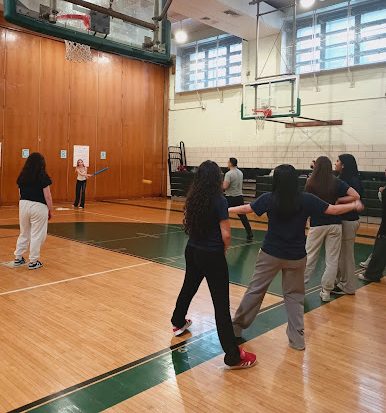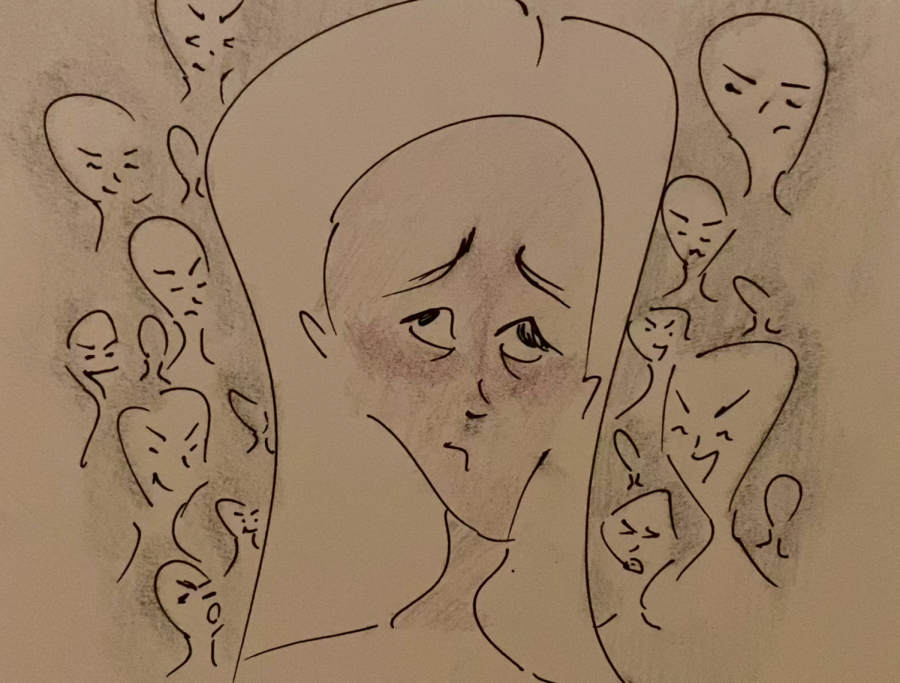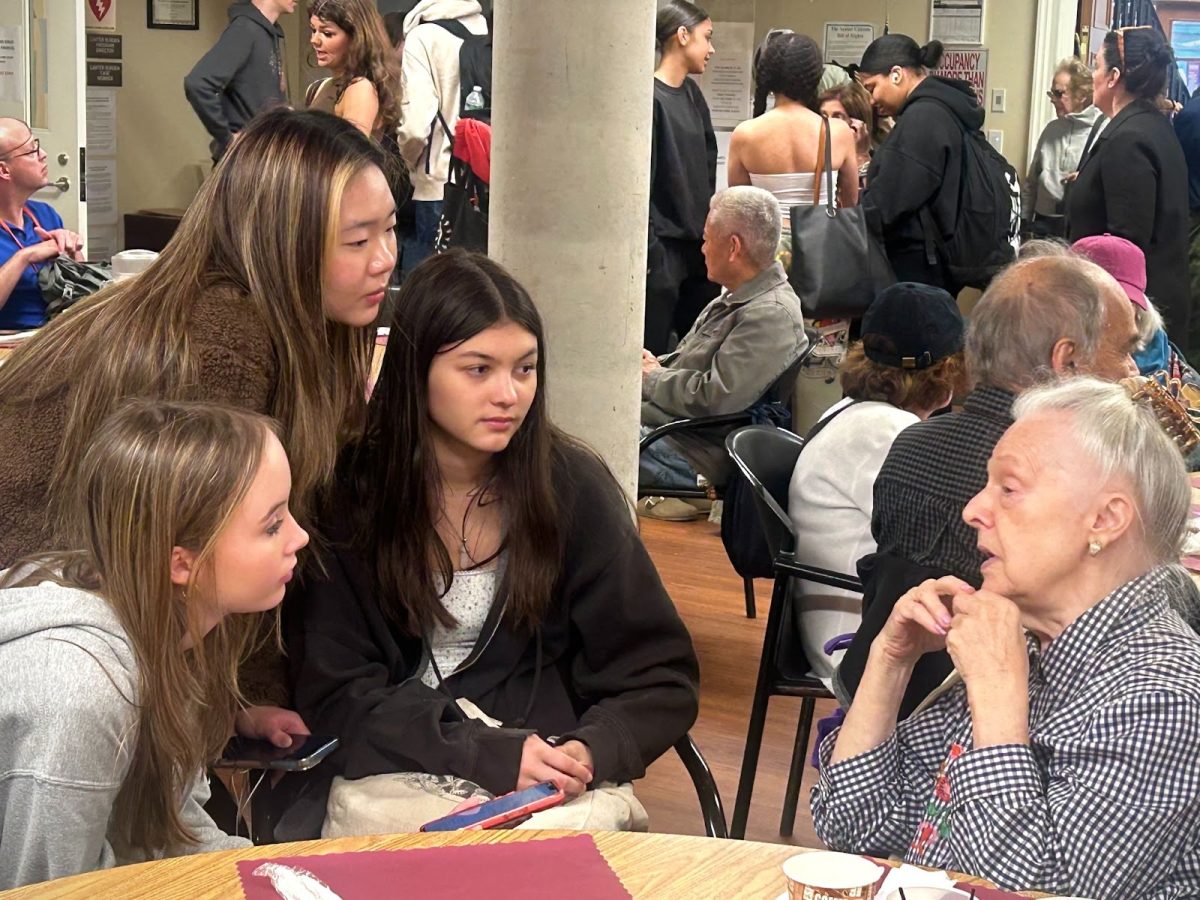Misogyny vs. Misandry
November 10, 2022
Any feminine presenting person can provide numerous accounts of feeling unsafe because of a man, especially in New York City. The idea that women need the protection of men stems from a culture that views women as property. Under this logic, unless a woman is visibly under the “custody” of another man, then it is believed to be within a man’s right to harass them.The potential and very prevalent danger of women being made unsafe by men is a chief example of misogyny.
Misogyny, in a more general sense, is defined as the hatred of women strictly on the basis of their gender, and extends to the hatred,and even fear, of anything remotely feminine in nature. Conversely, misandry is the hatred of men on the basis of their masculinity. The key difference between these two biases is that women have been oppressed by systems of misogyny for centuries while misandry stems from the resulting fear and resentment of women towards their oppressors. Misogyny fostered a long history of restrictions on women’s fundamental rights, while men have never faced this type of oppression, despite the existence of misandry.
Women’s physical safety and mental well-being are never a guarantee when in the presence of a man, especially if that person is a stranger. For example, junior Sydney Butscher expressed that she often feels unsafe on the subway because she can sense that men are staring at her. Sarah Latcholia of 10th grade has similar experiences that have caused her discomfort on public transportation, “a man stared me up and down…and then when he got off he gave me a little wink.”
The first time I was ever cat-called was when I was eleven years old walking home from getting ice cream with my friend. A man that looked around three or possibly four times our age, egged on by his friends, stopped us and proceeded to make sexual remarks about our bodies. Not knowing how to react, we pushed past him and continued walking. It is difficult to describe the disgust I felt at my own body knowing a man, old enough to be my father, had acted so inappropriately towards me.
These experiences of uneasiness are not limited to students as faculty members have similar stories. Advisor of Women’s Empowerment Club, Joselin Rivera, revealed a history of being objectified by men starting as early as middle school, “it’s a really scary experience, especially for the first time, being so young you don’t know what to do.” Unfortunately, her experiences are not unique, as this age “is when it happens for a lot of girls and women.”
Another faculty member, 11th grade English teacher Jean Ng, communicated her fears of male violence by relating a story of being alone in a taxi with a male driver. The driver had turned into a dark alley, generating a wave of panic that almost led her to leave the taxi mid-route. In reality, there was nothing untoward about his actions, but past experiences have forced her to assume the worst.
A vast majority of sex offenders, regardless of the demographics of the victim(s), are men, often leading women to make the misandrist assertion that all men are predators. Men typically respond with the infamous phrase “not all men.” Taken literally, this phrase has merit as not every man has committed sexual assault. However, most women who say “all men” do not mean it literally. To a woman walking home alone at night, it is impossible to know if a man is trustworthy or not; until it’s too late. They have no way of knowing until they are dragged into that alley or into that van. This mentality wasn’t adopted out of malice, but rather as a means of survival.
Yet many people have no sympathy for these justifiable fears and instead ridicule women for their “hysterical” behavior. Only one in 11.5 million people have been victims of a shark attack (University of Florida’s International Shark Attack File) whereas one in three women have been victims of sexual assault. Despite this, few people will scorn a fear of sharks in the same way they might a fear of men.
Misogyny is not always displayed so overtly, however, as it is often unconsciously done by the person speaking. One such covert form of misogyny is compensatory masculinity, or the actions that men take to reassert their masculinity in the face of a feminine threat, typically through exaggeration. In a study conducted by the University of South Florida it was found that after being tasked with braiding hair, a traditionally feminine role, men experienced high levels of anxiety. When allowed to partake in aggressive behaviors such as boxing, their anxiety levels lowered significantly, showing how men typically overcompensate in situations where their masculinity is challenged.
Furthermore, many men, especially of younger generations, refer to women as “females” without understanding that word’s full impact and history. The term “female” was first used as a noun referring to a female person by James Marion Sims, better known as the father of modern gynecology. Beginning in 1845, Sims performed experiments on enslaved black women without anesthesia. Due to the enslaved status of the women, they were completely without the ability to give consent and the lack of anesthetic must have made the experiments unbearably torturous. Sims, in need of a term that would allow his research to be applied to white women, without granting his subjects personhood, settled on the label already used by scientists to describe their animal subjects: “female.” When applied to women, this term was designed to be dehumanizing and objectifying and has the same lingering effects in the modern day.
Overt misogyny, such as violence against women and feminine presenting people, as well as covert misogyny, such as compensatory masculinity, are just a few of the examples of women’s systemic oppression under the patriarchy. Furthermore, men don’t have the same history of being denied basic rights such as suffrage, economic equality and independence, choice and opportunity, and therefor are unable to understand or share in gender-biased discrimination.
Misandry is reactive in its very nature. If our society were not a patriarchy and if women had always been given the same liberties and opportunities as men, misandry would never have developed. In reality, it isn’t men that they hate, but the societal power they hold. With power comes abuse, creating a collective fear in women of the men that outrank them. Fear, being the nurturing mother of hatred, gave rise to this common feminine prejudice, especially as women continue to push for equality, and sometimes retribution against those who have wronged them.




























Dingiswayo Jere. • Nov 7, 2024 at 4:13 am
Very insightful.
John Bergamini • Jun 28, 2024 at 12:42 am
“The key difference between [misogyny and misandry] is that women have been oppressed by systems of misogyny for centuries while misandry stems from the resulting fear and resentment of women towards their oppressors.”
No. The difference between misogyny and misandry is the first is about female victimization and the second is about male victimization.
Any reasonable objective accounting of the social stigmas men suffer, their generally shorter lifes and their political and legal oppression in this regime, would reckon them as the institutionally oppressed half of the human species. But the general public is so brainwashed and mind-controlled, they cannot see the obvious facts. Those who would disabuse the public of their sexist perspectives are censored by the ruling covert cultural matriarchy.
Heather Kundzicz • Nov 9, 2024 at 6:27 am
“Women’s physical safety and mental well-being are never a guarantee when in the presence of a man, especially if that person is a stranger”
This is a truth. Like the recounts in this article, I and almost every woman with whom I’ve discussed this, have been cat-called, experienced fear for safety, and some, including me, touched inappropriately if not assaulted or raped. That is not brainwashing, it is a constant and terrible reality. Not only for women, but also people who are perceived as less masculine than the social standards deemed for men.
I will give more thought to your points on oppression of men, and ponder how that would translate to mistreatment of women. In the meantime, decency is free, and decent men should speak out against boorish and dangerous behavior, and raise their children to do the same.
Aoife • Nov 14, 2022 at 12:06 pm
Hey, this is an awesome and beautifully written article and really makes a lot of excellent points on gender
nova • Nov 10, 2022 at 5:36 pm
YES! this is so important
Sydney Butscher • Nov 10, 2022 at 1:40 pm
This is amazing Gloria! It came out so good
Elise Edmonds • Nov 10, 2022 at 11:12 am
Very informative